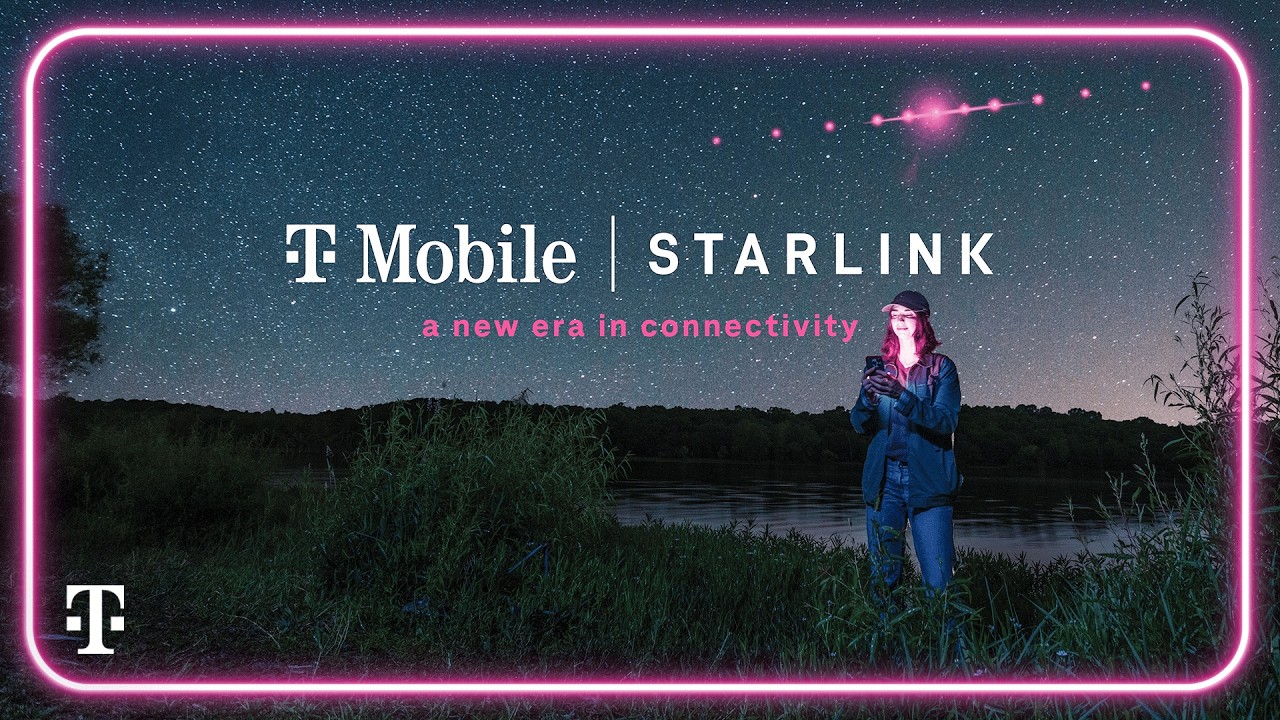T-Mobile's Starlink Satellite Service Officially Launches With iPhone Support
T-Mobile's Starlink Satellite Service Officially Launches
After months of testing, T-Mobile's "T-Satellite" service, powered by Starlink, has officially exited beta. Announced by T-Mobile CEO Mike Sievert on X, this service brings satellite-based text messaging capabilities to a wide range of customers.

How T-Satellite Works
T-Mobile's satellite service leverages over 650 Starlink satellites to provide text messaging functionality in areas with no cellular or Wi-Fi coverage. This isn't exclusive to T-Mobile subscribers; Verizon and AT&T users can also access the service.
Device Compatibility and Requirements
T-Satellite currently supports over 600 smartphone models, including iPhones. If you own an iPhone 14 or later, you can use T-Satellite, although these models already have Apple's built-in satellite communication features using Globalstar satellites. For T-Mobile's service, you'll need iOS 18.3 or later.
T-Satellite vs. Apple's Satellite Features
It's important to understand the differences between T-Mobile's T-Satellite and Apple's integrated satellite features. T-Satellite currently only supports text messaging via iMessage and SMS; data services are not included. In contrast, Apple's satellite communication system offers a broader range of capabilities, including:
- Sending and receiving messages
- Sharing location via Find My
- Connecting with emergency services
- Satellite-based weather updates
- Arranging roadside assistance via satellite
A key distinction is that Apple's satellite features are currently offered without any additional charges.
Pricing and Plans
T-Satellite's pricing varies depending on your existing mobile plan and carrier.
- T-Mobile Beyond 5G and Go5G customers: The service is included at no extra cost.
- Other T-Mobile customers: A $10 per month add-on is available through the "Manage Add-Ons" section of your account. Note that this is a limited-time promotional price, and it will increase to $15 per month in the future.
- AT&T and Verizon customers: The service is available for $10 per month by contacting T-Mobile customer support. This is also subject to the future price increase.
Identifying a Satellite Connection
When successfully connected to a Starlink satellite via T-Mobile's service, iPhone users will see a small "SAT" icon in their status bar, indicating that messages are being sent and received via satellite.
Frequently Asked Questions (FAQs)
What is T-Satellite?
T-Satellite is T-Mobile's satellite-based text messaging service that uses Starlink's satellite network to provide connectivity in areas without cellular or Wi-Fi coverage.
What devices are compatible with T-Satellite?
T-Satellite supports over 600 smartphone models, including iPhones. For iPhones, you need an iPhone 14 or later and iOS 18.3 or later.
How much does T-Satellite cost?
The price depends on your current plan and provider. It's free for T-Mobile Beyond 5G and Go5G customers. Other T-Mobile customers pay $10/month (temporarily), increasing to $15/month later. AT&T and Verizon customers also pay $10/month (temporarily).
What can I do with T-Satellite?
Currently, T-Satellite only allows for sending and receiving text messages (iMessage and SMS). Data services are not supported.
How is T-Satellite different from Apple's satellite features?
Apple's satellite features offer broader capabilities beyond texting, including emergency SOS, location sharing, and weather updates. Apple's service is currently free, while T-Satellite has a monthly fee.
How do I sign up for T-Satellite?
T-Mobile customers can add it via the "Manage Add-Ons" section of their account. AT&T and Verizon customers need to contact T-Mobile customer support.
How do I know if I'm connected to the satellite?
A "SAT" icon will appear in your iPhone's status bar when connected.
This article, "T-Mobile's Starlink Satellite Service Officially Launches With iPhone Support" first appeared on MacRumors.com
Discuss this article in our forums
from MacRumors
-via DynaSage

